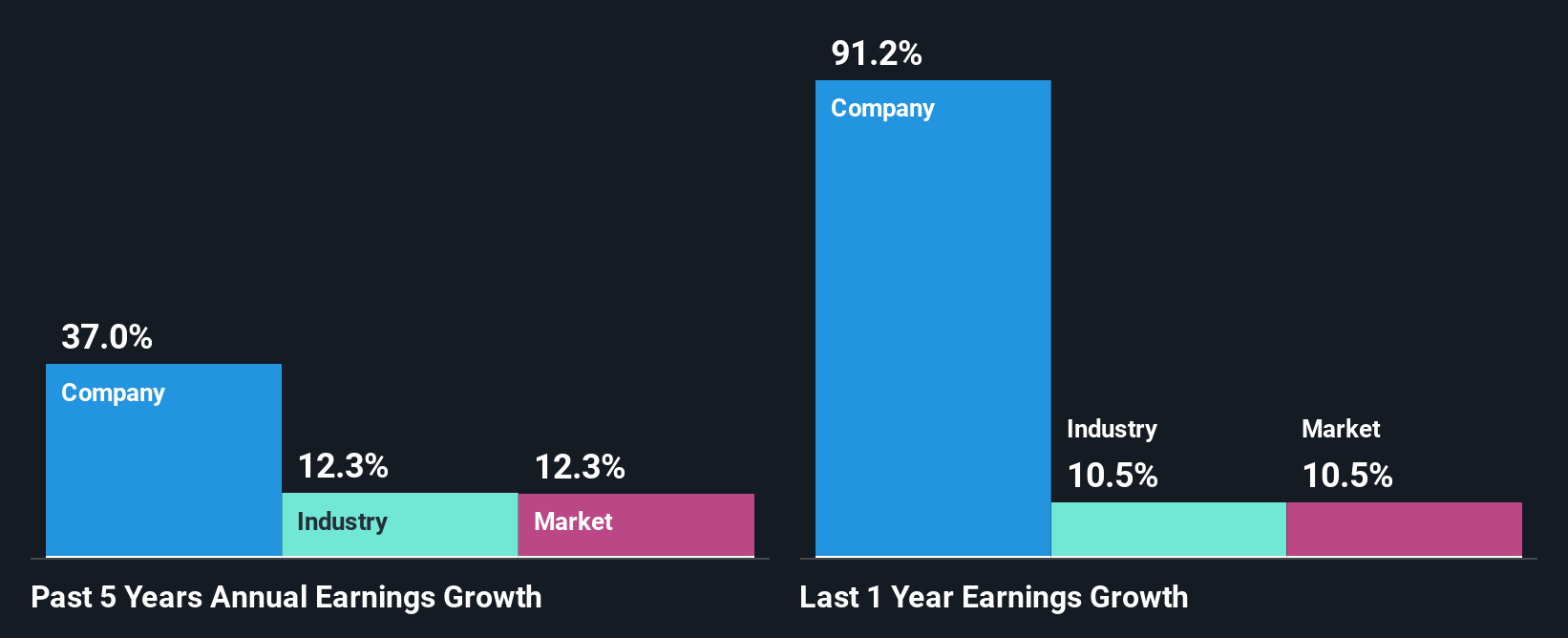Is Rakus Co., Ltd.'s (TSE:3923) Latest Stock Performance Being Led By Its Strong Fundamentals?

Rakus' (TSE:3923) stock is up by 6.8% over the past three months. Given that the market rewards strong financials in the long-term, we wonder if that is the case in this instance. In this article, we decided to focus on Rakus' ROE.
ROE or return on equity is a useful tool to assess how effectively a company can generate returns on the investment it received from its shareholders. Put another way, it reveals the company's success at turning shareholder investments into profits.
How To Calculate Return On Equity?
The formula for ROE is:
Return on Equity = Net Profit (from continuing operations) ÷ Shareholders' Equity
So, based on the above formula, the ROE for Rakus is:
36% = JP¥8.0b ÷ JP¥22b (Based on the trailing twelve months to March 2025).
The 'return' is the income the business earned over the last year. So, this means that for every ¥1 of its shareholder's investments, the company generates a profit of ¥0.36.
View our latest analysis for Rakus
What Is The Relationship Between ROE And Earnings Growth?
We have already established that ROE serves as an efficient profit-generating gauge for a company's future earnings. Based on how much of its profits the company chooses to reinvest or "retain", we are then able to evaluate a company's future ability to generate profits. Generally speaking, other things being equal, firms with a high return on equity and profit retention, have a higher growth rate than firms that don’t share these attributes.
Rakus' Earnings Growth And 36% ROE
Firstly, we acknowledge that Rakus has a significantly high ROE. Secondly, even when compared to the industry average of 13% the company's ROE is quite impressive. As a result, Rakus' exceptional 37% net income growth seen over the past five years, doesn't come as a surprise.
As a next step, we compared Rakus' net income growth with the industry, and pleasingly, we found that the growth seen by the company is higher than the average industry growth of 12%.

Earnings growth is an important metric to consider when valuing a stock. It’s important for an investor to know whether the market has priced in the company's expected earnings growth (or decline). By doing so, they will have an idea if the stock is headed into clear blue waters or if swampy waters await. Is Rakus fairly valued compared to other companies? These 3 valuation measures might help you decide.
Is Rakus Efficiently Re-investing Its Profits?
Rakus' ' three-year median payout ratio is on the lower side at 17% implying that it is retaining a higher percentage (83%) of its profits. So it looks like Rakus is reinvesting profits heavily to grow its business, which shows in its earnings growth.
Besides, Rakus has been paying dividends over a period of nine years. This shows that the company is committed to sharing profits with its shareholders.
Summary
Overall, we are quite pleased with Rakus' performance. Specifically, we like that the company is reinvesting a huge chunk of its profits at a high rate of return. This of course has caused the company to see substantial growth in its earnings. That being so, a study of the latest analyst forecasts show that the company is expected to see a slowdown in its future earnings growth. To know more about the company's future earnings growth forecasts take a look at this free report on analyst forecasts for the company to find out more.
New: AI Stock Screener & Alerts
Our new AI Stock Screener scans the market every day to uncover opportunities.
• Dividend Powerhouses (3%+ Yield)
• Undervalued Small Caps with Insider Buying
• High growth Tech and AI Companies
Or build your own from over 50 metrics.
Have feedback on this article? Concerned about the content? Get in touch with us directly. Alternatively, email editorial-team (at) simplywallst.com.
This article by Simply Wall St is general in nature. We provide commentary based on historical data and analyst forecasts only using an unbiased methodology and our articles are not intended to be financial advice. It does not constitute a recommendation to buy or sell any stock, and does not take account of your objectives, or your financial situation. We aim to bring you long-term focused analysis driven by fundamental data. Note that our analysis may not factor in the latest price-sensitive company announcements or qualitative material. Simply Wall St has no position in any stocks mentioned.
About TSE:3923
Outstanding track record with high growth potential.
Market Insights
Community Narratives




